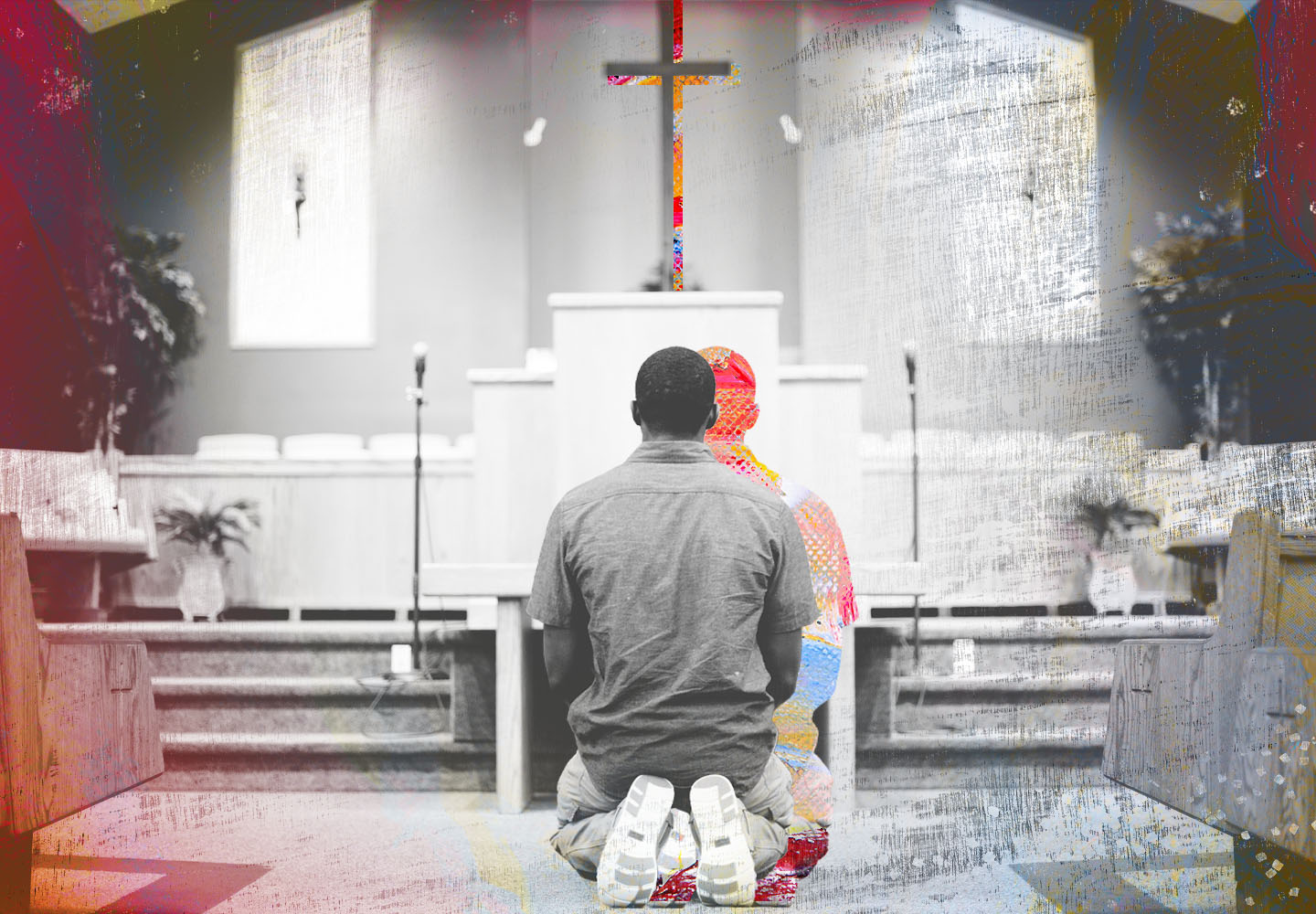After over 45 years in ministry, I have noticed that Ministers often sabotage themselves when they experience disillusionment, burnout, or stress. When God calls a minister to serve Him, this calling potentially carries significant baggage. How does a person say no to God’s calling in one’s life? One might say, “A person called by God is not supposed to deal with real feelings.”
When a minister is struggling emotionally, physically, spiritually, and relationally, he or she often faces disillusionment, discouragement, and feelings of failure. These things often lead to moral failure and unhealthy behavior. Moral failure is demonstrated through lying, embezzling money, using pornography, cheating or engaging in sexual misconduct. Unhealthy behavior is characterized by anger, stress, obsessive-compulsive patterns and isolation.
A minister’s life calling can be so intimate and all-encompassing that it is almost impossible for him to quit eon God. When a minister feels like quitting, he often sabotages himself by committing a sin that he knows will get him fired. When the church fires him and fails to forgive, reconcile, or redeem him, he rationalizes that the church and even God has failed him. The minister did not quit on God; rather the church quit on him by failing to forgive and letting him go. The minister is able to walk away justified, blaming the church for its unforgiving spirit. Given this type of scenario, it is critical that ministers have people in their lives who can speak the truth in love into their lives. Ministers need someone they can trust with complete honesty. Relationships are vital for a minister to develop resilience and sustainability. Yet seventy percent of ministers do not have someone they consider a close friend. During a meeting of ministers, each person shared his spiritual/relational pilgrimage referring to those persons that had significant impact on his life. Most of these men did not mention a current relationship as meaningful.
Ministers need someone they can trust with complete honesty. Relationships are vital for a minister to develop resilience and sustainability.
Statistics point to shocking levels of ministerial ineffectiveness, lack of resilience and staying power, minister burnout, discouragement, depression and moral failure. Too many ministers have been lost to burnout and ineffectiveness because of a lack of understanding, lack of healthy process for healing and lack of honest, open dialogue in a safe environment where biblical community exists. Ministers have been seduced to believe that it is somehow better to sabotage their ministries than to engage in healthy behavior patterns and support systems that can help them deal with their problems and challenges.
A healthy leader is one who will follow a moral compass regardless of trends, popular opinion or convenience not necessarily the one who has the most names on the church membership roll or the most bodies in worship. Perhaps he is the one who gets the most people excited about Jesus and are willing to set aside some of their needs, comforts, and preferences to go out and serve others in Christ’s name. A healthy minister reflects Christ, “And we, who with unveiled faces all reflect the Lord’s glory, are being transformed into his likeness with ever-increasing glory, which comes from the Lord, who is the Spirt.” (II Cor. 3:18). A healthy leader should engage in and experience resiliency, sustainability, and biblical community.
The church is in desperate need of pastors who will use their God-given influence at the right time, for the right reasons, and with the right motives. The church needs leaders who know the way, go the way, show the way, and live the way.
The church is in desperate need of pastors who will use their God-given influence at the right time, for the right reasons, and with the right motives.
Living and engaging in biblical community is the key to healthy leaders who demonstrate resiliency and sustainability. This occurs when people do life together in a safe, secure environment where ministers can genuinely know others and be known by others. This knowing and being known occurs through giving and receiving. It occurs when a group bounds together in love in which there is an awareness of others’ needs and putting those needs ahead of one’s own needs (Phil. 2:3-4).
Assisting ministers in developing biblical community requires focusing on building relationships, not on meetings. Ministers do not necessarily need counseling sessions, they need conversations. Pastors do not necessarily need a therapist; they need a friend. Friendship and biblical community are about relationships preceding information or agendas. Playing and praying together will create an environment in which pastors can share their own stories and make private pain public. Events do not lead to biblical community, proximity does. Proximity provides the opportunity to invest in someone else which will provide an opportunity for the development of biblical character and integrity.
Some will say, “I just share it with my spouse.” This cannot all be dumped on your spouse. They are carrying their own issues and challenges. He needs other people to do life with.
Biblical community is multi-faceted and at some level a mystery. But you know it when you find it. Wes Roberts and Glenn Marshall suggest, “Community includes the bonding of uncommon people around a common mission.” A pastor suggested years ago that biblical community is knowing and being known, loving and being loved, serving and being served, celebrating and being celebrated. David Prior claims that, “Community life after the likeness of Christ is sheer, uncomplicated thankfulness.” Kevin Ford said, “The transforming church is a community of people participating with God and one another in the creative process” of Gospel advancement. Larry Cragg says, “The church is a community of people on a journey to God. Wherever there is supernatural togetherness and Spirit-directed movement, there is the church – a spiritual community.”
A pastor suggested years ago that biblical community is knowing and being known, loving and being loved, serving and being served, celebrating and being celebrated.
Biblical community is a group of people actually loving one another transparently and hearing from God together as they do life with one another and are edified into the fullness of Christ.
Eph. 4:11-16 expresses the need for unity and bearing with one another as an expression and strategy for biblical community. Imagine a church where people are tolerant and patient with one another and choose to be givers rather than takers. Rather than being a church of consumers, Paul says in Eph. 4:11-16 that a healthy church is a church of contributors. Ministers in the same way need each other to speak into their lives. This is not suggesting that there will be no conflict. In fact community happens through the tunnel of conflict. Only as we deal with conflict in a healthy constructive way will we experience community.
One of the greatest challenges ministers face is isolation. When a minister feels alone and isolated it is very difficult for him or her to deal with stress. Severe stress contributes to depression, anxiety, reduces feelings of pleasure, and diminishes the quality of life and relationships. Isolation is the antithesis of biblical community (Reflect on Acts 2:44-47).
Pastors are the casualties of a system of ministry that is insatiable. Because of ever-changing demands, people’s increasing needs/wants, and the “consumer-driven” mindset in the American Church, the work is never finished. Because of these expectations, most ministers in America are constantly on the go, living on adrenaline, which can be addictive but not sustainable.
Biblical community is a group of people actually loving one another transparently and hearing from God together as they do life with one another and are edified into the fullness of Christ.
The Covid Pandemic, along with September 11. 2001, were wake-up calls for the citizens of the United States. The American people realized their need for one another. We cannot do life, especially Christianity, alone. We need people who know us deeply in the strong and not-so-strong places in our lives. Again, Larry Crabb suggests, ‘We need each other, never more than when we are broken….Brokenness is a condition, one that is always there, inside, beneath the surface, carefully hidden for as long as we can keep a façade in place….A central task of community is to create a place that is safe enough for the walls to be torn down, safe enough for each of us to own and reveal our brokenness.”
With few exceptions, in America the culture values individualism, which encourages isolation. It is hard, especially in ministry, to admit that one has needs that God alone cannot meet. God made us for biblical community. Instead of building biblical community, ministers claim to be just fine. Inside, pastors are dying and depressed but refuse to own up to their own brokenness. Ministers love to create the concept of biblical community, but they are afraid or unable to commit to the concept of community and settle for a counterfeit corporate pragmatism. The primary concern of the early church was not a matter of doing “what works” but a matter of being the people of God. Jesus modeled escaping isolation by living and doing life with a few chosen people.
Let me challenge each minister who is reading this to take a step of faith and risk knowing and being known, loving and being loved, serving and being served, celebrating and being celebrated.
by Bill Lighty is the Regional Director of the Pikes Peak Baptist Association
(Portions are taken from a ministry research project by Dr. Bill Lighty entitled, “Developing Ministerial Resilience and Sustainability Among A Select Group of Pastors Through Biblical Community.” )







